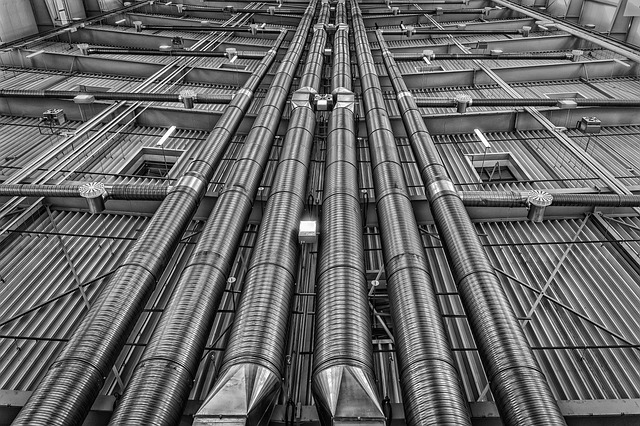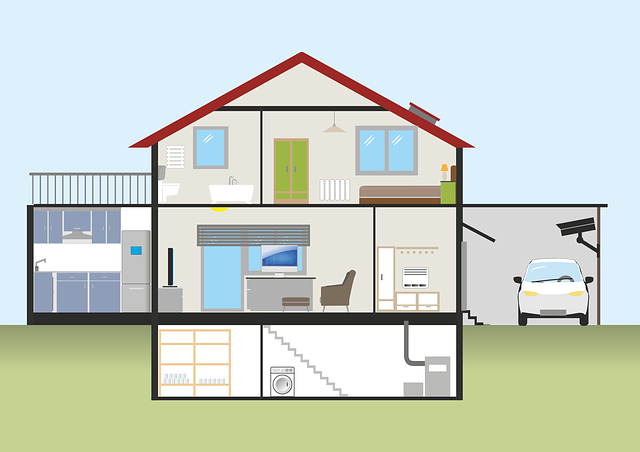Commercial electric boilers are advanced heating solutions that offer high energy efficiency, cost savings, and a smaller carbon footprint for modern businesses and institutions. Integrating these smart systems with Building Automation Systems (BAS) optimizes building performance by enabling precise temperature control and automatic adjustments based on real-time data. High-capacity electric steam and hot water boilers provide modular, sustainable solutions for diverse applications, contributing to greener buildings and reduced operational costs, as proven by successful case studies in education and industry.
In today’s quest for efficient and sustainable buildings, smart commercial electric boilers are emerging as a game-changer. Integrating with building automation systems (BAS), these advanced boilers offer unparalleled control and energy optimization. This article explores the synergistic relationship between smart boilers and BAS, highlighting their combined role in enhancing heating and hot water systems’ efficiency. We delve into key features, dissect successful case studies, and uncover the benefits that make these integrations a must-have in modern construction.
- Understanding Commercial Electric Boilers: Their Role and Benefits
- The Rise of Building Automation Systems: Enhancing Efficiency
- Integrating Smart Boilers with BAS: A Synergistic Approach
- Key Features and Technologies in Modern Smart Boilers
- Case Studies: Success Stories of Integrated Solutions
Understanding Commercial Electric Boilers: Their Role and Benefits

Commercial electric boilers are advanced heating solutions designed to cater to the demanding needs of modern businesses and institutions. These boilers play a pivotal role in providing efficient and sustainable heating for commercial spaces, including offices, hotels, hospitals, and industrial facilities. Their primary function is to generate hot water or steam, which can be used for various purposes such as space heating, domestic hot water supply, and powering central heating systems.
One of the key benefits of commercial electric boilers is their environmental friendliness and energy efficiency. Unlike traditional gas or oil-fired boilers, these electric heating systems produce no greenhouse gas emissions during operation. This makes them an attractive option for businesses aiming to reduce their carbon footprint and contribute to a greener future. Moreover, with advancements in commercial boiler technology, high capacity electric boilers offer superior energy efficiency, ensuring significant cost savings on utility bills. Their modular design and easy installation make them versatile, allowing for seamless integration into existing commercial HVAC systems and institutional heating infrastructures.
The Rise of Building Automation Systems: Enhancing Efficiency

In recent years, building automation systems (BAS) have experienced a significant surge in popularity across various industries. This trend is driven by the need for enhanced efficiency, reduced operational costs, and improved comfort for both occupants and administrators. Integrating smart commercial electric boilers into these automated systems offers a promising path forward. Electric heating systems, particularly high-capacity electric boilers, are being recognized as a sustainable alternative to traditional gas or oil-fired counterparts, contributing to greener buildings.
The adoption of advanced commercial boiler technology allows for seamless control and monitoring of temperature settings, water flow rates, and energy consumption patterns. This real-time data enables institutions to fine-tune their heating and hot water delivery systems, ensuring optimal performance at all times. As a result, electric steam boilers and modular boiler systems are increasingly preferred in institutional heating applications, promising significant energy savings and a smaller carbon footprint.
Integrating Smart Boilers with BAS: A Synergistic Approach

Integrating smart commercial electric boilers with Building Automation Systems (BAS) represents a synergistic approach that optimizes energy efficiency and enhances overall building performance. By seamlessly connecting advanced electric heating systems to sophisticated control mechanisms, facilities can achieve precise temperature regulation, reduced energy consumption, and lower operational costs. This integration allows for automated adjustments based on real-time occupancy data, lighting levels, and weather conditions, ensuring optimal use of commercial boiler technology.
In the realm of institutional heating and commercial HVAC systems, electric steam boilers and electric hot water boilers offer a wide range of modular boiler systems capable of catering to high capacity demands. These energy-efficient boilers not only reduce carbon footprints but also provide consistent, reliable heating for various applications, from large-scale industrial processes to smaller, more intricate commercial spaces. Such integration promotes sustainability and contributes to a greener, more efficient built environment.
Key Features and Technologies in Modern Smart Boilers

Modern smart commercial electric boilers are transforming the way buildings are heated, offering a range of advanced features and technologies that enhance efficiency and control. These boilers leverage internet connectivity to integrate seamlessly with building automation systems, allowing for precise temperature regulation, remote monitoring, and predictive maintenance—all contributing to reduced energy consumption and operational costs. Key among these innovations are intelligent controls, which learn and adapt to building occupancy patterns, ensuring optimal heating without waste.
Additional features like modulating fire control and advanced heating elements enable these electric boilers to deliver precise heat output, responding dynamically to changing demands. This, coupled with high-efficiency insulation and compact designs, results in remarkable energy efficiency gains. Moreover, the integration of modular boiler systems and electric steam boilers into larger commercial HVAC networks allows for scalable solutions tailored to institutional heating needs, making them versatile assets for a wide array of applications, from office buildings to hospitals.
Case Studies: Success Stories of Integrated Solutions

In the realm of commercial HVAC systems, successful integration of smart electric boilers has been a game-changer for many institutions and businesses. Case studies highlight that combining high capacity electric boilers with building automation systems yields substantial energy efficiency gains. For instance, a leading educational institution implemented modular boiler systems, enabling precise temperature control in individual zones. This not only reduced energy consumption but also lowered operational costs significantly.
Another notable story involves a large-scale industrial facility where electric steam boilers were integrated into their existing automation framework. The result was a streamlined process that boosted overall efficiency. Electric heating systems played a pivotal role in this transformation, ensuring consistent and efficient institutional heating throughout the facility. These examples underscore the potential of commercial electric boiler technology to revolutionize heating in various sectors, contributing to both cost savings and environmental sustainability.
The integration of smart commercial electric boilers with building automation systems (BAS) represents a significant step forward in optimizing energy efficiency and building management. By seamlessly combining advanced boiler technologies with intelligent control systems, this synergistic approach offers numerous benefits, including enhanced operational control, improved energy performance, and reduced environmental impact. As the demand for sustainable and efficient buildings continues to grow, the adoption of these smart solutions will likely become a game-changer in the industry, setting new standards for commercial heating and hot water systems.






